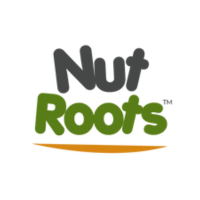
Introduction:
For years, Bud Light has reigned supreme as the leading beer brand in the United States, capturing a significant share of the market. Renowned for its iconic branding, widespread availability, and successful marketing campaigns, Bud Light has become a staple choice for beer enthusiasts nationwide.
Bud Light: A Beer Giant:
Bud Light’s ascendancy to the top of the beer industry can be attributed to various factors. Its consistent quality, mass appeal, and extensive distribution network have played a pivotal role in cementing its dominant position. The brand’s long-standing success has made Bud Light a household name, synonymous with American beer culture.
The Controversy: Trigger for Change:
However, Bud Light faced a major setback when it became embroiled in a controversy that sparked a widespread boycott. The controversy, fueled by ethical concerns, public perception, or contentious actions, ignited a significant backlash from consumers. This backlash culminated in Bud Light’s decision to relinquish its top-selling title, reflecting the impact of consumer activism on brand reputation and market share.
The Power of Consumer Activism:
The fallout from the boycott demonstrates the growing power of consumer activism in today’s socially conscious landscape. Consumers are increasingly vocal about their expectations for responsible business practices, ethical considerations, and brand alignment with their values. Social media platforms and online communities have provided a platform for consumers to express their opinions, mobilize support, and hold companies accountable for their actions.
Evolving Consumer Preferences:
Bud Light’s loss of the top-selling position also reflects the shifting preferences of consumers in the beer industry. Modern consumers seek more than just a generic beer experience; they desire authenticity, unique offerings, and connections with brands that resonate with their values. This trend has paved the way for smaller craft breweries and niche brands to gain traction by offering distinctive flavors, craftsmanship, and localized appeal that cater to discerning beer enthusiasts.
Ripple Effects in the Beer Industry:
Bud Light’s decision to relinquish its top-selling title has sent shockwaves throughout the beer industry. Competitors, both established and emerging, are now presented with an opportunity to capture market share and meet the evolving demands of consumers. Craft breweries, regional beer producers, and innovative newcomers are leveraging their agility, creativity, and ability to connect with consumers on a more personal level to challenge the dominance of established brands like Bud Light.
Implications and Future Outlook:
The fallout from the controversy and subsequent decision by Bud Light carries significant implications for the brand and the beer industry at large. Bud Light must now navigate the task of rebuilding trust, addressing consumer concerns, and redefining its position in an increasingly competitive market. Meanwhile, the industry as a whole must recognize the power of consumer sentiment, adapt to changing preferences, and prioritize responsible business practices to maintain relevance and market success.









